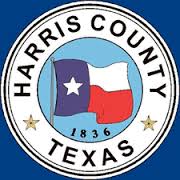I wish I felt more optimistic about this.
Harris County will file a lawsuit challenging two Republican-backed election bills headed to Gov. Greg Abbott’s desk, County Attorney Christian Menefee announced Wednesday.
At issue are two measures that apply only to Harris County, including one that abolishes the elections administrators office.
Menefee said the lawsuit would be filed after the bills are signed into law by the governor.
“The Texas Constitution is clear: the Legislature can’t pass laws that target one specific city or one specific county,” Menefee said. “And that constitutional ban makes a whole lot of sense. We don’t want our lawmakers going to Austin, taking their personal vendettas with them and passing laws that target local governments instead of doing what’s in the best interest of Texans.”
Both bills originally were written to apply more broadly.
Senate Bill 1750, the measure eliminating Harris County’s elections administrator post, initially applied to counties with at least 1 million residents, before it was narrowed to include only Harris.
More than half of Texas’ 254 counties have appointed elections administrators, including several of the most populous, such as Bexar, Tarrant, Dallas and Collin.
The bill returns election responsibilities to the elected county clerk and tax assessor-collector, ending Harris County’s three-year run with an appointed elections administrator.
The second bill the county plans to challenge, Senate Bill 1933, increases state oversight and requires Harris County election officials — upon being placed under “administrative oversight” — to clear all election policies and procedures with the Secretary of State. The bill also gives the Secretary of State, currently former state senator Jane Nelson, authority to send employees from her office to observe any activities in a county’s election office.
A last-minute amendment to that bill narrowed the scope to only Harris County.
“I think we were all completely blindsided,” Menefee said.
While the first bill transfers election administration duties to two elected officials, the second bill creates an expedited process to remove those two officials, Menefee said.
“Under Senate Bill 1933, the Secretary of State is able to initiate lawsuits to remove only two elected officials from office in the entire state of Texas, and that’s the Harris County Clerk and the Harris County Tax Assessor-Collector,” Menefee said.
[…]
Rice University political science Professor Bob Stein disputed Bettencourt’s “performance not politics” rationale for the bills.
“This was red meat,” Stein said. “They needed to do this the same way they did voter ID laws in many states, to convince the base that they were doing something about a problem that they claimed existed but did not exist.”
Stein said he thinks it unlikely the county’s legal challenges will succeed.
His fellow Rice political scientist Mark Jones agreed.
“Counties, under the Texas Constitution, really only have those powers that the state chooses to endow them with. And what the state giveth, the state can taketh away,” Jones said. “And so, on a legal perspective, Harris County doesn’t have a leg to stand on in terms of objecting to the elimination of the elections administrator position.”
The county, however, may be able to make the case that it needs more time to implement the transition, he said.
See here for the background, and here for the full statement from County Attorney Menefee. I hate to say this, but I think Mark Jones is right. Years ago when I was a young blogger and discovering the weird ways of Texas politics, I learned about the constitutional ban against targeting or specifying a city or county or other entity in a bill. The way around that was always to put in enough qualifiers to narrow the bill down to only one thing or place or whatever. Far as I know, that’s been The Way It Is And Has Always Been for forever. That doesn’t mean it’s kosher, legally speaking. It may mean that it’s never been challenged in court like this – cities and counties have often asked for specialized legislation in the past, after all – or it may mean that Menefee and others think that the animus aimed at Harris County pushes these bills over a legal line. I don’t know enough to say, but it’s something we’ll be able to tell when we see the actual complaint that gets filed.
Even if we accept everything that Menefee is saying, and there’s no prior case law to contradict his claims, I suspect that the courts may be reluctant to side with Harris County specifically because of the current laws that were written in similar fashion in the past. While there could be a narrow order in Harris County’s favor that just addresses these bills and the forthcoming complaint, the potential will be there for a very large can of worms being opened. I wouldn’t be surprised at all if that can were then weaponized against Houston by the usual cadre of villains. I don’t want to speculate too much ahead of the facts – Christian Menefee is way smarter than I am about all this, and I trust his judgment. But these are the things I am worried about.
Again, the problem here is the very political targeting of Harris County by a Republican Party that values its own power over everything else. In an equitable world, in a world where voting rights were cherished and protected, these laws wouldn’t stand a chance. We don’t live in that world, and until we get better state leaders and a real Voting Rights Act again, we won’t live in that world. The route we have to deal with this problem right now is littered with obstacles and probably won’t lead to anything good. But it’s all we have. The Press has more.

